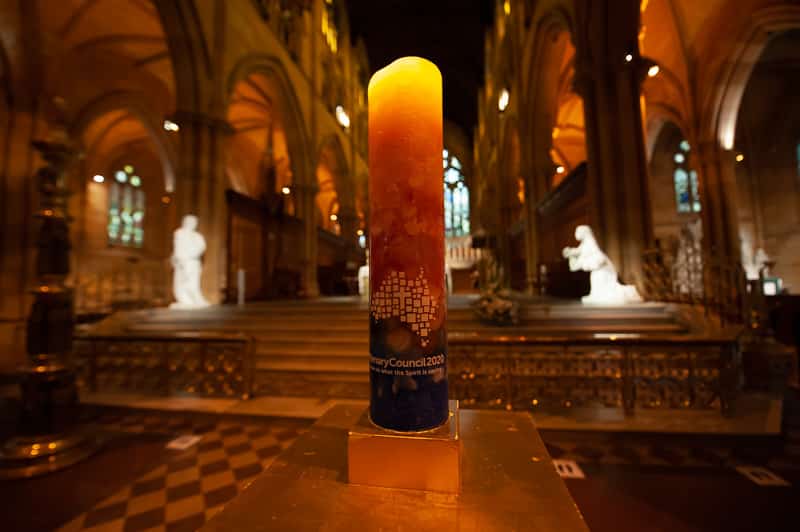
This Sunday the fifth Plenary Council of Australian will commence, a historic opportunity for the Catholic Church in Australia to renew its commitment to the mission of Jesus Christ in this ‘Great South Land of the Holy Spirit’.
Throughout the past three years, an exhaustive consultation process has been conducted toward this ecclesial gathering which will convene for two assemblies, the first of which will be held online due to the ongoing coronavirus pandemic and a second assembly to be held in Sydney, the setting in which the Catholic Church was first established in this country.
As a member of the preparatory Executive Committee for the Plenary Council and co-author of its Instrumentum Laboris or working document, it has been a privilege to reflect on the process and principles of synodality over this time and upon the many thousands of submissions offered toward this nation-wide process of discernment taking place within our Church.
Given the serious opportunity that the Plenary Council represents – to renew the Church in Australia, its spiritual life as well as its social mission – and its nature as a concrete expression of the synodality to which Pope Francis invites the whole Church, it is helpful to identify hermeneutical principles that can assist us enter into that genuine discernment of which the Pope has spoken with frequency and conviction.[1]
This brief reflection and the principles articulated within it are offered as a lens through which to consider the matters of the Plenary Council for the renewal of the Church in Australia from the perspective of ecclesial faith. It seeks to support the task of ‘discerning the Church with the Church’ as it were, as a positive contribution to the Plenary Council, its delegates and those with an interest in this ecclesial gathering.

Foundations
As shared earlier this month by Pope Francis in his address to the faithful of Rome, the process of synodality involves ‘interrogating Revelation according to a pilgrim hermeneutic that knows how to safeguard the journey begun in the Acts of the Apostles”.[2] This process of synodality or ‘journeying together’ is led by the Holy Spirit who is received by the whole Church, all the faithful as the People of God and the ministry of bishops in collegiality with one another and the Bishop of Rome.
It demands an authentic discernment that “cultivate[s] an attitude of listening, growing in the freedom of relinquishing one’s own point of view (when it is shown to be partial and insufficient), to assume that of God.”[3] This instinct of faith is developed by our growing openness as the baptised to the Word received in the Scriptures, the tradition of the Church as received from the Apostles, and in ‘the sense of all the faithful’ today as we seek to ‘tradition’ God’s loving outreach to humanity in Christ in the present.
Hence, the hermeneutical principles that follow treat the Plenary Council not as a mere ‘gathering of opinions’ as Pope Francis has cautioned against[4], even less as the subject of ecclesiastical political science, but as an event of faith that responds to God’s revelation. It approaches the Plenary Council as a concrete expression of synodality that arises from the nature of the Church itself: as a communion that depends upon its life and vitality on listening and responding to the mission of Christ given to us; in the words of the International Theological Commission, “as the People of God journeying together and gathering in assembly, summoned by the Lord Jesus in the power of the Holy Spirit to proclaim the Gospel”.[5]
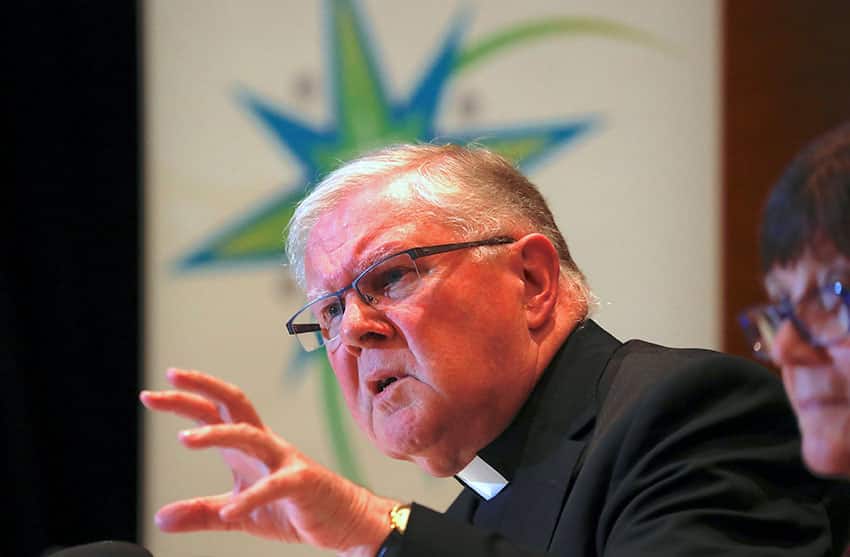
The principles, while not exhaustive, recognise the specific mandate of the Plenary Council to consider the ways in which the Church in Australia can most faithfully and fruitfully practice its mission amid the challenges and prospects of our time. As well, they draw from the Instrumentum Laboris or preparatory document for the Council that was itself the result of the listening and dialogue process and submissions received since Pentecost 2018 and working papers developed by discernment and writing groups that followed.[6] While not exhaustive, the principles also seek to take into account those provided in the recent Vademecum or guide for local churches in listening and discernment, produced by the Secretary General for the Synod of Bishops ahead of the universal Synod to take place in 2023.[7]
Some Hermeneutical Principles
- Deliberations at the Plenary Council should bear in mind the expressed purpose of the Council which is “to decide what seems opportune for the increase of faith, the organisation of common pastoral action, and the regulation of morals and of the common ecclesiastical discipline which is to be observed, promoted and protected”.[8] This means that the function of the Plenary Council is not to define or determine articles of faith (what Catholics are to believe) nor can it legislate on matters of discipline which the Holy See has reserved to itself. Some matters that may be raised will belong to the universal tradition and teaching of the Catholic Church. They are, in that sense, beyond the capacity of the Church in Australia to change. This does not mean that they cannot be discussed; only that they cannot be decided upon by the Church in Australia. However, a Plenary Council can pass legislation regulating how doctrine is to be taught, how worship is to be regulated and how governance is to be better exercised in practice. It is these concrete matters that the Council can consider in benefit to the Church’s missionary mandate.
- The Plenary Council in Australia takes place within the life of the communion of the Catholic Church, which is universal. The Plenary Council preparations and celebration invites discernment and a response to the fundamental question as to ‘what God is asking of us in Australia at this time’. This discernment is undertaken by Catholics in Australia conscious of our communion with all the local Churches scattered throughout the world and in communion, together with them, with the Church of Rome. It is this ‘communion of churches’ which constitutes the Catholic Church of which the Church in Australia is a concrete manifestation.

- As identified by the Second Vatican Council, critical to the exercise of ecclesial discernment is the duty of “scrutinising the signs of the times and of interpreting them in the light of the Gospel” (Gaudium et Spes 4). The opportunities and challenges for the Catholic Church in Australia are discernible through a variety of sources, including those submissions made as part of preparations for the Council, the significant insights of pastoral research in Australia offered by our National Centre for Pastoral Research, the experiences and testimony of local communities of faith, the insights of the Royal Commission into Institutional Responses to Child Sexual Abuse and the subsequent governance review, and the social, political and cultural realities of wider Australian society to which the Church cannot be indifferent.[9] This demands a Christian realism, as the Instrumentum Laboris for the Council affirms, for “we are a people of hope, not dismissive of the failures, not blind to the challenges, not complacent about the future, but confident that because it is the Lord’s Church of which we are a part we can move forward with trusting faith”.[10] By faith we hold that the ‘light of the Gospel’ that guides our response to these complex realities is found in and communicated by the Church, through the Word of God and the Church’s living tradition which includes its body of teaching, worship and practices.
- The deliberations of the Plenary Council should bear in mind that synodality is lived out in service of the Church’s mission of evangelisation. The Plenary Council and its proposals provide an opportunity to witness to, and orient the Church in Australia toward, an ecclesial way of being that is a prophetic example for Australian society, addressing the prospects for the deepening of discipleship and strengthening of our evangelising mission in this context. It is this mission of evangelisation that is to be the guiding criteria for the Church’s renewal and the fruit of the Church’s synodality par excellence.[11]
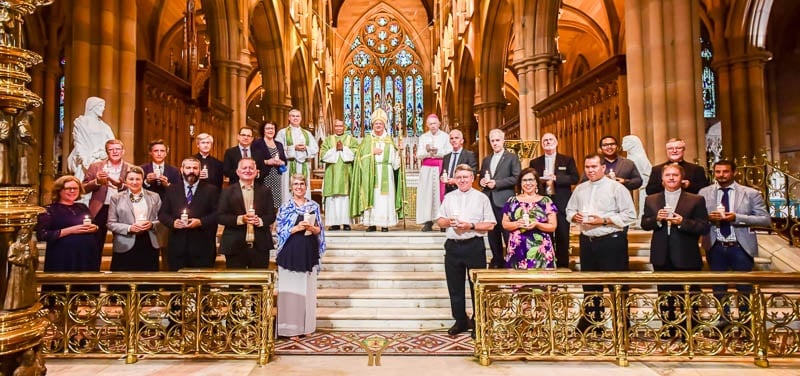
- The Plenary Council in its preparations and forthcoming celebration invites us to be attentive to the sensus fidei which is the gift of the Holy Spirit given to all the faithful and an instinct for the truth of the Gospel. This instinct, informed by the Holy Spirit in Scripture and tradition, enables the Church to recognise and endorse authentic Christian doctrine and practice, to receive more deeply and to transmit more effectively and faithfully the Catholic faith. All the Catholic faithful play an active and critical role in this articulation and development so that ‘the Tradition that comes from the apostles makes progress in the Church, with the help of the Holy Spirit’ (Dei Verbum 8). It is the Holy Spirit who allows us to be anchored in our faith and move at the same time. In this ‘journeying together’ of the whole Church in fidelity to Christ it is the particular charism and ministry of the bishops to discern whether opinions which are present among the people of God, and which may seem to be the sensus fidelium, actually correspond to the truth of the Tradition received from the Apostles.[12]
- In its dialogue, the Plenary Council and its participants can recognise two inseparable elements in Pope Francis’ vision of the Church in discernment, “episcopal collegiality within an entirely synodal Church”.[13] The synodality of the whole Church is that in which “the faithful people, the college of bishops, the Bishop of Rome [are] all listening to each other, and all listening to the Holy Spirit, the ‘Spirit of truth’ Jn 14:17], in order to know what he ‘says to the Churches’”[14]; while episcopal collegiality refers to the role that bishops, as a college and as successors of the Apostles, in communion with each other and with the Bishop of Rome, act as “authentic guardians, interpreters and witnesses of the faith of the whole Church, which they need to discern carefully from the changing currents of public opinion”.[15] In short, the magisterium must sense with the Church as a whole where the Spirit’s inspiration is leading, with the bishops serving as a listening and learning body of teachers, attentive to the sense of faith throughout the Church, as well as discharging an apostolic commission to authentically interpret what is true to and advantageous for the faith.
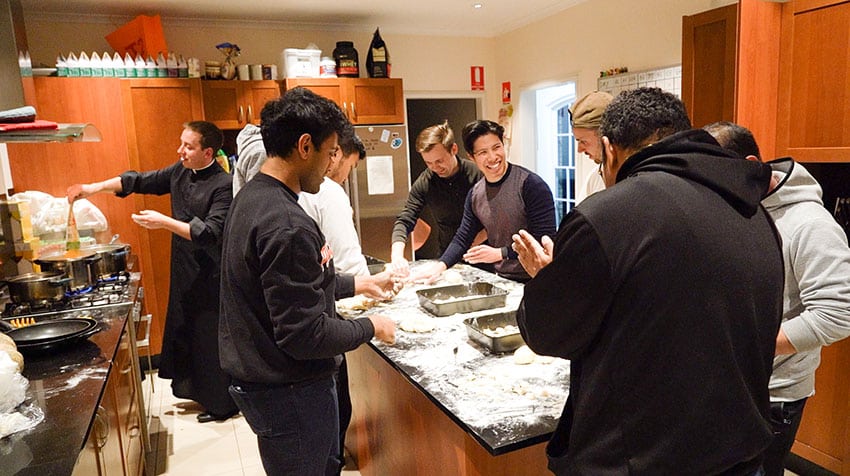
- A consensus of the submissions made to the Plenary Council is that, in its deepest sense, the renewal of the Church demands and depends upon the ongoing conversion of all of its members. Our hope and future as a Church in Australia cannot be found outside our need for God and our repentance for the ways in which members of our Church have failed to be faithful to its call. By the correction of those flaws introduced by its members and by the increase in the Church’s faithfulness to the mission given to her by Christ, the Church becomes more of itself as a sacrament or effective sign of God’s presence in the world. As such, every renewal of the Church essentially consists in “an increase of fidelity to her own calling… Christ summons the Church as she goes her pilgrim way… to that continual reformation of which she always has need, in so far as she is a human institution here on earth”.[16]
- A consequence of this dynamic of ecclesial renewal is that consideration of the Church‘s structures cannot be separated from the personal conversion of those who form the Church and who shape the way in which those structures build up the Church and its mission or otherwise. As recognised by Pope Francis, “There are ecclesial structures which can hamper efforts at evangelisation, yet even good structures are only helpful when there is a life constantly driving, sustaining and assessing them.”[17] The Vademecum for the Synod on Synodality affirms this very point, “The conversion and renewal of structures will come about only through the on-going conversion and renewal of all the members of the Body of Christ”.[18]
The Vademecum for the Synod on Synodality affirms this very point, “The conversion and renewal of structures will come about only through the on-going conversion and renewal of all the members of the Body of Christ”.
- In discernment of proposals of renewal, the Plenary Council in Australia should avoid the temptation of a “new pelagianism” which attempts to correct problems and reduce difficulties and tensions within the Church by relying on bureaucratic and administrative reforms.[19] As underscored by Pope Francis to the Church in Germany, it is the encounter with Christ and the irruption of the Holy Spirit within hearts and structures that renews the entire body of the Church, not the mere reorganisation of existing realities.[20]
- Ecclesiological assumptions underpinning proposals for renewal should be taken into consideration by the Plenary Council and its delegates in the discernment of change, as there are a variety of ways in which the concept of ‘renewal’ can be engaged. For some, ‘renewal’ will refer to a process whereby something is corrected which was in error; for others, it represents a return to past forms; while for still others it has the character of growth or development, an account which assumes continuity, that our present conditions as a reflection of where the past naturally tended. Different understandings of the identity and mission of the Church will produce varying proposals of the way in which ‘renewal’ might be realised, including by excision, addition, revival, accommodation, development or a combination of these approaches.[21] Identifying these fundamental ecclesiologies can support the dialogue and discernment of change.
- In the study of proposals, critical distinctions also need to be made at the Plenary Council regarding the nature of the matter under discussion. As the Instrumentum Laboris emphasised in acknowledging the range of issues which are troubling Catholics in Australia at this time, it is prudent to ask whether the matter of discussion is “man-made” law or custom which can be modified or even abandoned, or if the matter is a moral absolute, fidelity to which is essential to the Church’s response to Christ and His teaching.[22]
- A key concern for the Plenary Council in discussions will be to ensure that nothing in the Church’s preaching or witness is lacking in mercy, while at the same time remaining faithful to all that the Lord has given to us in the Church’s doctrinal and moral teachings. The Instrumentum Laboris and working papers that informed it describe this concern as constituting “one of the great contemporary pastoral and catechetical challenges for the Church in Australia”.[23] Pope Francis’s teaching in Evangelii Gaudium on what he calls the “art of accompaniment” offers essential guidance toward this end.[24]
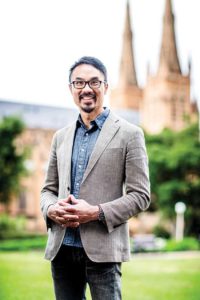
Conclusion
These principles seek to offer a lens through which matters of the Plenary Council in Australia can be considered from the perspective of Catholic faith and as informed by the process of listening and dialogue as synthesised through its Instrumentum Laboris or working document.
Informed by the purpose of the Plenary Council and the nature of the Church as a communion, inspired and led by the Holy Spirit, they are also presented with the Christian realism that, as St John Henry Newman affirmed, “truth is the daughter of time”.[25] That is, there will be tensions or issues that arise from the fifth Plenary Council that will be left open for future synthesis and require discernment well past its two forthcoming assemblies.
However, it is with great hope and anticipation that we as Catholics in Australia enter into this fifth Plenary Council in our short history, with a common desire that the Church in Australia experiences a greater conversion under the influence of the Spirit of Christ and is renewed and ultimately better equipped to proclaim the unchanging Gospel with new ardour and vitality.
The Catholic tradition is none other than the Church’s reception of Jesus through time under the guidance of this Holy Spirit and in this time of challenge and opportunity for the Church in Australia it is incumbent upon us to seek out, receive and now voice in the days ahead what this Spirit is saying to the churches (Rev 2:7).
[1] See, for instance, Chapter 9 of Pope Francis’ Post-Synodal Apostolic Exhortation to Young People, Christus Vivit, https://www.vatican.va/content/francesco/en/apost_exhortations/documents/papa-francesco_esortazione-ap_20190325_christus-vivit.html
[2] Pope Francis, Address to the Faithful of the Diocese of Rome, 18 September, 2021.
[3] Pope Francis, Address to Bishops Ordained Over the Past Year, 14 September, 2017: https://www.vatican.va/content/francesco/en/speeches/2017/september/documents/papa-francesco_20170914_nuovi-vescovi.html
[4] Pope Francis, Address to the Faithful of the Diocese of Rome, 18 September, 2021: https://www.vatican.va/content/francesco/it/speeches/2021/september/documents/20210918-fedeli-diocesiroma.html
[5] International Theological Commission, “Synodality in the Life and Mission of the Church” n.70: https://www.vatican.va/roman_curia/congregations/cfaith/cti_documents/rc_cti_20180302_sinodalita_en.html.
[6] A summary of the nation-wide consultation process, the six papers that resulted from discussion of these submissions and the Instrumentum Laboris can be found on the website for the Plenary Council: https://plenarycouncil.catholic.org.au
[7] Secretary General for the Synod of Bishops, Vademecum for the Synod on Synodality: Official Handbook for Listening and Discernment in Local Churches: First Phase [October 2021 – April 2022] in Dioceses and Bishops’ Conferences Leading up to the Assembly of Bishops in Synod in October 2023: https://www.synod.va/en/news/vademecum-for-the-synod-on-synodality.html
[8] Code of Canon Law 445.
[9] The report on governance within the Church, commissioned by the Australian Catholic Bishops Conference and Catholic Religious Australia, entitled The Light of the Southern Cross: Promoting Co-Responsible Governance in the Catholic Church in Australia is available online at: https://www.catholicreligious.org.au/light-from-the-southern-cross. The initial response of the Australian Bishops to the report can be found at: https://drive.google.com/file/d/1okB3jSsJ4dYAt_0GzrIJyVZS2l1cZBtC/view
[10] Instrumentum Laboris for the Plenary Council in Australia 51: available at https://plenarycouncil.catholic.org.au/wp-content/uploads/2021/09/PC-IL-210902-online.pdf
[11] Pope Francis, Letter to the Pilgrim People of God in Germany, 29 June, 2020: http://www.vatican.va/content/francesco/it/letters/2019/documents/papa-francesco_20190629_lettera-fedeligermania.html
[12] International Theological Commission, “Sensus Fidei in the Life of the Church”, n77. https://www.vatican.va/roman_curia/congregations/cfaith/cti_documents/rc_cti_20140610_sensus-fidei_en.html#_ftn84
[13] Pope Francis, Address Commemorating the 50th Anniversary of the Institution of the Synod of Bishops, https://www.vatican.va/content/francesco/en/speeches/2015/october/documents/papa-francesco_20151017_50-anniversario-sinodo.html
[14] Pope Francis, Evangelii Gaudium 171, repeated in his Address Commemorating the 50th Anniversary of the Institution of the Synod of Bishops.
[15] Pope Francis, Address Commemorating the 50th Anniversary of the Institution of the Synod of Bishops; Instrumentum Laboris 31.
[16] Pope Francis, Evangelii Gaudium 26. Instrumentum Laboris 55; 61.
[17] Pope Francis, Evangelii Gaudium 26; Instrumentum Laboris 64.
[18] Secretary General for the Synod of Bishops, Vademecum for the Synod on Synodality.
[19] Pope Francis, Evangelii Gaudium 11.
[20] Pope Francis, Letter to the Pilgrim People of God in Germany; see also Evangelii Gaudium, 94; Instrumentum Laboris 62.
[21] See John O’Malley, “Reform, Historical Consciousness and Vatican II’s Aggiornamento”, Theological Studies 32 (1971): 573-601; and also Ormond Rush, Still Interpreting Vatican II: Some Hermeneutical Principles, 72-75 for a summary of O’Malley’s taxonomy of renewal.
[22] Instrumentum Laboris 39.
[23] Instrumentum Laboris 40.
[24] See Pope Francis, Evangelii Gaudium 169-173.
[25] John Henry Newman, An Essay on the Development of Christian Doctrine (1878).
